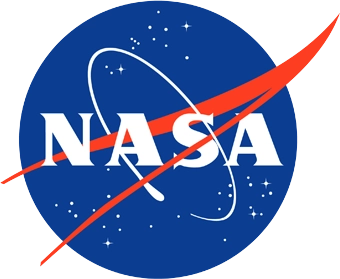Seamus Anderson is a planetary scientist whose main interests involve the use of high-temperature laboratory experiments to improve our understanding of secondary terrestrial atmospheres, as well as advancing mineral processing techniques for ISRU. Other research interests include using drones and machine learning to recover meteorites from observed, orbitally-constrained meteorite falls, and analyzing said meteorites to better understand the recent history of meteoroid and asteroid evolution.
Seamus Anderson
(NASA POSTDOCTORAL PROGRAM FELL)
| Email: | seamus.anderson@nasa.gov |
| Org Code: | 691 |
| Address: |
NASA/GSFC Mail Code 691 Greenbelt, MD 20771 |
| Employer: | NPP POST-DOC CONTRACT |
Brief Bio
Education
PhD Applied Geology (2023) - Curtin University, Perth, Western Australia
B.S. Physics (2017) - University of Central Florida, Orlando, FL
Positions/Employment
Postdoctoral Researcher
Curtin University - Perth, Western Australia
September 2022 - December 2023
Meteorite recovery and analysis using drones and machine learning
Lab Manager
Center for Microgravity Research, University of Central Florida - Orlando, FL
June 2017 - August 2018
Research Assistant
Center for Microgravity Research, University of Central Florida - Orlando, FL
June 2016 - June 2017
Research Assistant
Florida Space Institute, University of Central Florida - Orlando, FL
September 2015 - August 2018
Selected Publications
Refereed
2024. "The Arpu Kuilpu meteorite: In‐depth characterization of an H5 chondrite delivered from a Jupiter Family Comet orbit." Meteoritics & Planetary Science 59 (11): 3087-3110 [10.1111/maps.14268] [Journal Article/Letter]
2022. "Successful Recovery of an Observed Meteorite Fall Using Drones and Machine Learning." The Astrophysical Journal Letters 930 (2): L25 [10.3847/2041-8213/ac66d4] [Journal Article/Letter]
2021. "The proposed Silicate-Sulfuric Acid Process: Mineral processing for In Situ Resource Utilization (ISRU)." Acta Astronautica 188 57-63 [10.1016/j.actaastro.2021.07.016] [Journal Article/Letter]
2021. "Mineralogy, petrology, geochemistry, and chronology of the Murrili (H5) meteorite fall: The third recovered fall from the Desert Fireball Network." Meteoritics & Planetary Science 56 (2): 241-259 [10.1111/maps.13615] [Journal Article/Letter]
2020. "Machine learning for semi‐automated meteorite recovery." Meteoritics & Planetary Science 55 (11): 2461-2471 [10.1111/maps.13593] [Journal Article/Letter]
2020. "A Global Fireball Observatory." Planetary and Space Science 191 105036 [10.1016/j.pss.2020.105036] [Journal Article/Letter]
